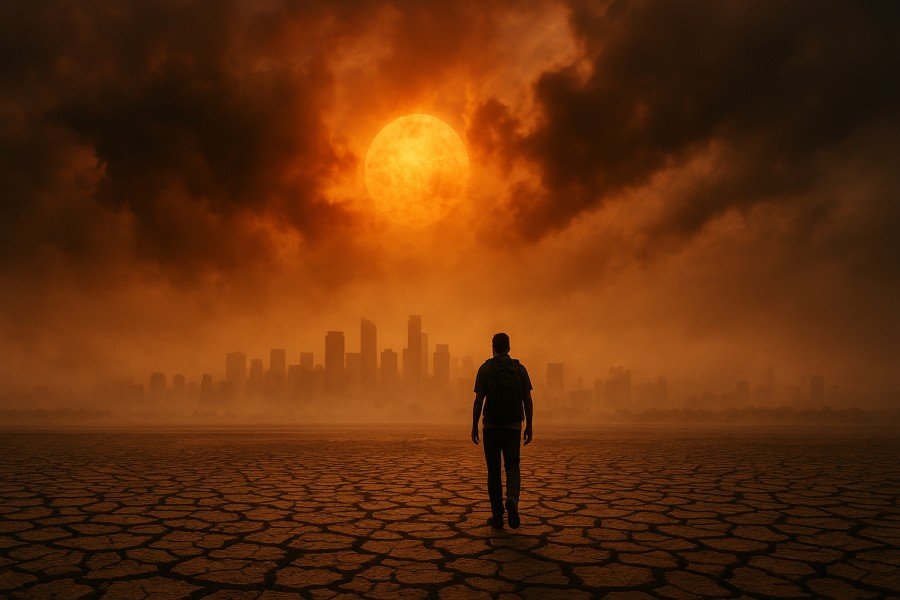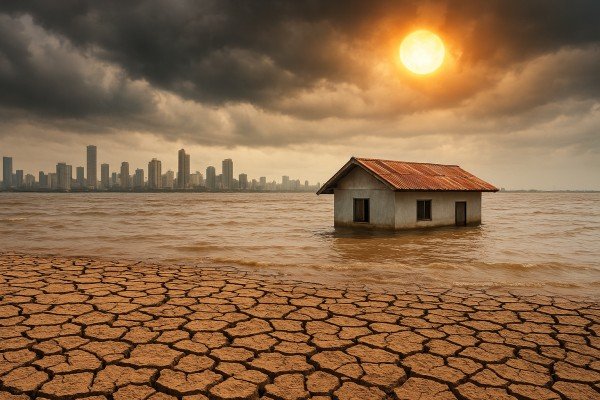Climate change is no longer a distant concern; it is the reality shaping our present and future. In 2025, the global community finds itself at a crossroads where the effects of climate change are more visible, intense, and widespread than ever before. Rising global temperatures, extreme weather events, shifting ecosystems, and socio-economic consequences are forcing countries, businesses, and individuals to take action. This article explores the global impact of climate change in 2025, highlighting environmental, economic, and political dimensions.
Rising Temperatures and Extreme Weather
One of the most striking outcomes of climate change in 2025 is the surge in extreme weather events. Heatwaves are longer and more severe, making cities across Asia, Europe, and North America increasingly uninhabitable during summer months. Floods and hurricanes continue to devastate coastal regions, while prolonged droughts are leaving millions struggling for water in parts of Africa and the Middle East.
Scientific reports highlight that global temperatures have already surpassed the 1.5°C threshold, intensifying these phenomena. With this milestone crossed, humanity is entering uncharted territory, where adaptation becomes as crucial as mitigation.
Economic Fallout Across Industries
The economic toll of climate change is becoming impossible to ignore. In 2025, agriculture faces massive disruptions due to unpredictable rainfall and soil degradation. Farmers are experiencing declining crop yields, which not only impacts food security but also fuels inflation in global markets.
Similarly, the energy sector is under pressure to accelerate the transition to renewables. Oil-dependent economies are grappling with shrinking revenues, while countries investing in green technologies are positioning themselves as future leaders. Tourism, insurance, and real estate industries are also facing unprecedented challenges as climate risks reshape consumer behavior and investment priorities.

Climate Migration and Humanitarian Crises
Another profound impact of climate change in 2025 is the surge in climate migration. Rising sea levels and natural disasters are displacing communities, particularly in small island nations and low-lying coastal areas. The United Nations estimates that tens of millions of people have already been forced to migrate due to environmental factors.
This migration is creating political and social challenges, including border tensions, resource conflicts, and humanitarian crises. Governments worldwide are being pushed to redefine immigration policies and allocate resources for disaster management.
Political and Social Dimensions
Climate change has also become a central issue in global politics. Nations are under immense pressure to fulfill the commitments outlined in the Paris Agreement and subsequent climate summits. In 2025, climate action is no longer optional but a determinant of international relations and national stability.
Leaders such as Gavin Newsom, who have championed progressive climate policies in regions like California, are setting examples for others to follow. Yet, the divide between developed and developing nations remains significant, especially when it comes to funding adaptation strategies. Social movements, fueled by younger generations, are demanding greater accountability from governments and corporations, creating a shift in public discourse.
Technology and Innovation in Climate Solutions
Despite the challenges, 2025 also showcases remarkable progress in climate technology. Innovations in renewable energy storage, carbon capture, and sustainable agriculture are paving the way toward a greener future. Smart cities equipped with eco-friendly infrastructure and AI-driven energy management systems are reducing emissions at scale.
Public awareness and consumer preferences are driving businesses to adopt sustainable practices, making climate responsibility a competitive advantage.
The Road Ahead
The global impact of climate change in 2025 is a stark reminder that the time for action is now. While technological progress and international agreements provide hope, the window to avoid irreversible damage is narrowing. Governments, businesses, and individuals must collaborate to accelerate sustainable practices, reduce emissions, and invest in resilience.
Climate change is not just an environmental issue—it is a defining challenge of our time, affecting health, economies, politics, and daily lives. The decisions made today will determine whether future generations inherit a planet of opportunity or crisis.








